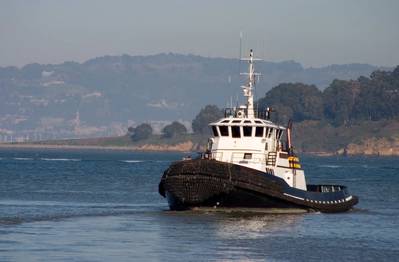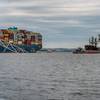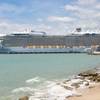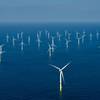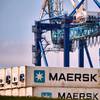Navigating Sustainability: Charting a Way Forward
You can feel it in the air, and increasingly on the water: a steady increase in momentum toward a global economy that prioritizes sustainability. Government stakeholders at all levels, and shipping customers across industries, are setting ambitious goals and high expectations for environmental performance, and that includes the transportation of U.S. and global commerce on the waterways.
For the tugboat, towboat and barge industry, which moves nearly 700 million tons of cargo on America’s rivers, coastal waters and Great Lakes annually, it’s both an exciting and challenging time. How does an industry as geographically and operationally diverse as ours, made up of companies ranging from large, publicly traded corporations to family-owned multi-generation small businesses, navigate this profoundly disruptive sustainability landscape in a way that’s good for the environment and for the bottom line?
It was this question that led AWO’s Board of Directors to establish the CEO-level Sustainability Task Force, a group of leaders from across our industry focused on developing a strategy to address the various dimensions of this challenge. The Task Force’s recommendations, approved by AWO’s Board earlier this year, aim to ensure that the tugboat, towboat and barge industry has a prominent seat at the table in the ongoing national and global sustainability conversation, and that we are well positioned to advance positive outcomes and defend against proposals that would limit or disadvantage the industry.
As an industry, we have an extremely positive sustainability story to tell policymakers, industry customers and the public today: the story of a single dry cargo barge that can move as much cargo as 16 rail cars or 70 trucks; of vessels that emit over 40% less carbon than rail and over 800% less than trucks; of our industry’s substantial investment in repowering vessels to improve engine performance, which has slashed emissions by more than 15% since 2005; of our central role in the development of U.S. offshore wind energy; and of an industry embracing innovation by employing new technologies to reduce fuel consumption, improve vessel performance, and run on alternative fuels.
We need to tell this positive story far and wide, because our existing advantages over other modes, demonstrated commitment to continuous improvement, and unique position of having greater capacity for expansion than truck or rail, mean that waterways transport represents low-hanging fruit for shippers seeking to reduce their own environmental footprint. Public policies that support and encourage greater use of the most efficient and sustainable mode of freight transport would enable the U.S. to reduce transportation emissions overall, as the Biden Administration’s interagency blueprint for transportation decarbonization has recognized.
We also need public policy – and investment – to maximize the efficiency, capacity and resiliency of the marine transportation system. That includes investing in modernized locks and dams and ensuring that the U.S. Army Corps of Engineers and Coast Guard have access to the dredgers, buoy tenders and other assets needed to keep navigation running safely and smoothly. It means exploiting the potential of digitization and data to optimize efficiency, reduce idling, and lower emissions.
And while it’s critical to pursue policies that help vessel operators lead on sustainability by encouraging a shift toward waterways and maximizing efficiency, it’s equally important to make sure policymakers do no harm to an industry so vital to a more sustainable future. That means eschewing policies that create inconsistent or duplicative regulatory patchworks, or impose infeasible requirements like we have regrettably seen with the California Air Resources Board’s insistence on unsafe technologies and unworkable timelines.
Ours is a diverse industry of hundreds of companies and thousands of vessels, each with its own set of business drivers, operational needs and human and financial resources. We need public policies that support all vessel owners in taking the next steps on their sustainability journey – from removing bureaucratic impediments to technological innovation by early adopters, to helping companies that will never have a business case for an electric tug take meaningful steps toward reducing emissions from existing vessels. The collective impact of helping every vessel owner do better than they are today – rather than trying (impossibly) to make everyone do the same thing – will be transformative. Alongside our advocacy for enlightened public policy, AWO is committed to supporting members in their individual efforts to reduce their environmental impact by developing best practices; facilitating information-sharing; and increasing access to funding opportunities and other resources to support the adoption of sustainable technologies.
The tugboat, towboat and barge industry is a critical economic driver and indispensable security asset for the United States. By leveraging our collective strength and ingenuity to tell our story, advance supportive public policy, and empower companies across our industry in pursuing continuous environmental improvement, we will further establish ourselves as a proactive sustainability leader and partner for years to come.




